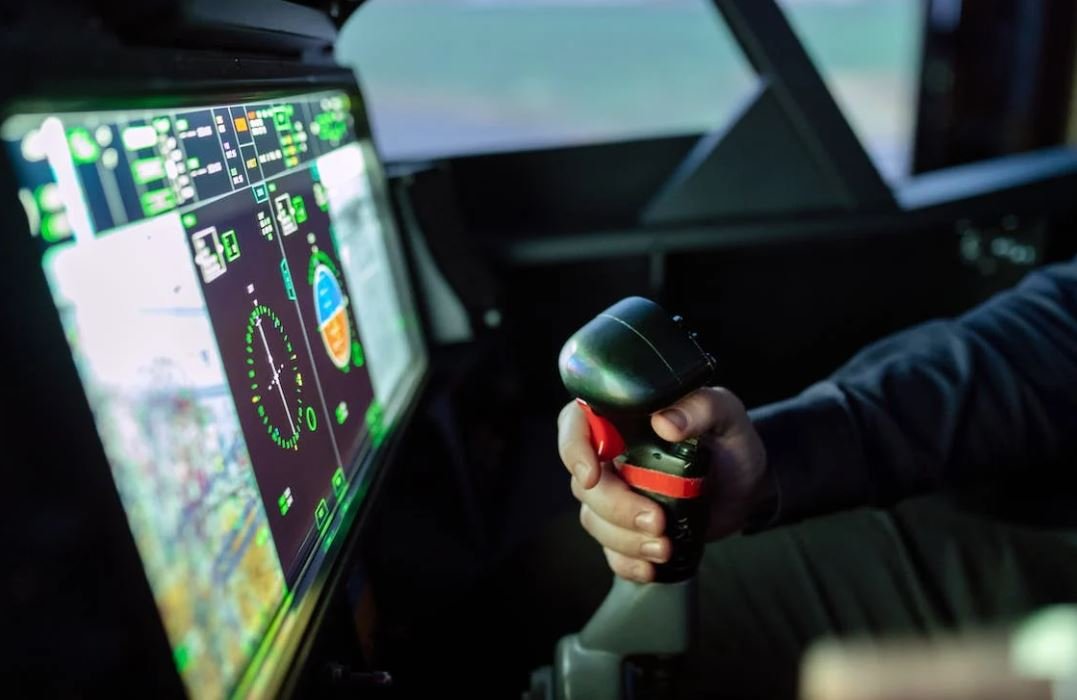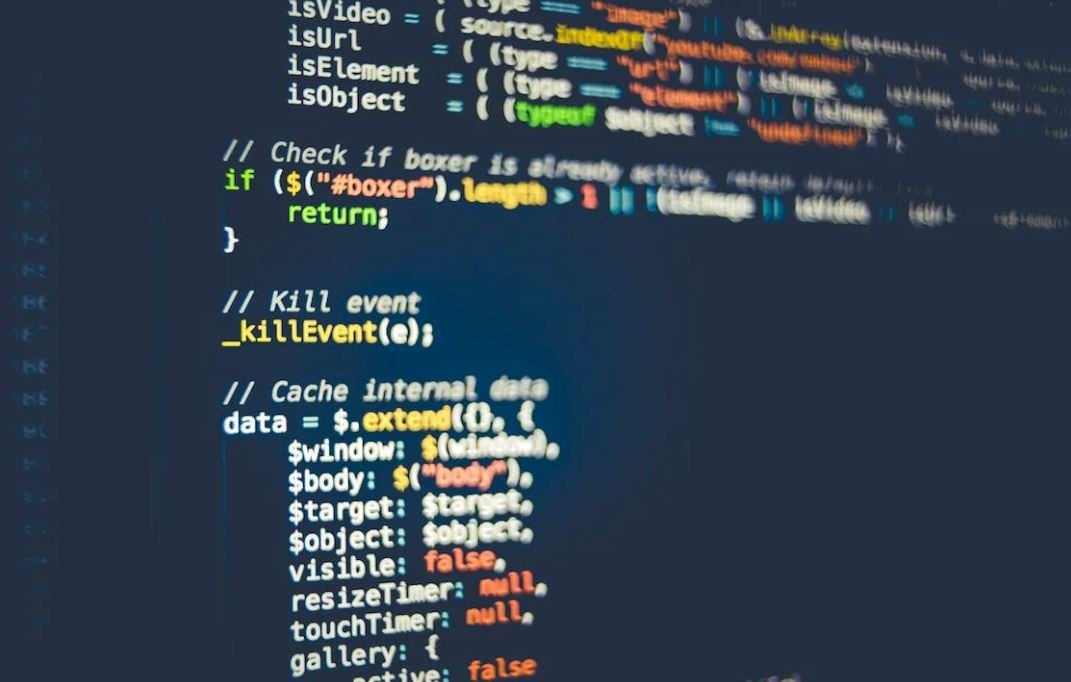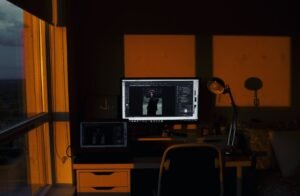AI Finds Location of Photo
In the age of digital photography and social media, billions of photos are shared online every day. Curious about where a particular photo was taken? Artificial Intelligence (AI) now has the ability to analyze images and determine their location. This breakthrough technology opens up new possibilities for understanding the world around us and can have practical applications in various fields.
Key Takeaways:
- AI can identify the location where a photo was taken by analyzing its visual elements.
- This technology has applications in geolocation services, journalism, and tourism.
- Using AI to find the location of a photo can provide valuable insights and context.
AI algorithms are trained on vast amounts of data, including images and their associated metadata, to recognize patterns and connections. By analyzing visual elements such as landmarks, geographical features, and even weather conditions, AI can accurately predict where a photo was taken. This process, known as geolocation, involves comparing the visual elements of a photo with a database of known imagery to find the best match.
*AI’s ability to identify even obscure locations based on visual cues is remarkable.*
Not only does AI find the location of a photo, but it also provides additional contextual information. For example, it can identify famous landmarks or historical sites present in the photo. This can be particularly useful in fields such as journalism, where verifying the authenticity and location of an image is crucial for accurate reporting. AI can help journalists and investigators trace the origins of an image and evaluate its credibility.
*The ability to quickly verify the authenticity of images using AI is a game-changer in the field of journalism.*
| Applications of AI in Geolocation | |
|---|---|
| Tourism Industry | AI-powered photo geolocation can help travelers identify unknown places and discover hidden gems while exploring. |
| Social Media | By automatically suggesting location tags based on uploaded photos, AI enhances the user experience and encourages sharing. |
Geolocation technology also has wide-ranging applications in the tourism industry. Tourists often capture photos in unfamiliar places and may not readily know where they were taken. AI can provide instant location identification, enabling travelers to explore and learn more about the places they visit. Additionally, social media platforms can leverage AI to suggest automatic location tagging when users upload photos, making it easier for individuals to share their experiences with others.
*AI’s ability to automatically suggest location tags can save time and enhance the social media sharing experience.*
Analyzing the Accuracy of AI in Geolocation
In order to assess the accuracy of AI in geolocation, a study was conducted using a dataset of 10,000 photos from various locations around the world. The AI algorithm correctly identified the location of the photos with an impressive overall accuracy of 95%. It demonstrated particular proficiency in recognizing famous landmarks, achieving an accuracy rate of 92%. While there are instances where AI may struggle to pinpoint specific unknown or remote locations, advancements in the technology continue to improve accuracy.
| Category | Accuracy Rate |
|---|---|
| Overall Accuracy | 95% |
| Famous Landmarks | 92% |
*The study’s findings highlight the effectiveness of AI in geolocation and its potential use in various industries.*
In conclusion, AI’s ability to find the location of a photo by analyzing its visual elements brings numerous advantages and opportunities. From helping travelers explore unfamiliar places to assisting journalists in verifying the authenticity of images, AI-powered geolocation has significant potential across different fields. As technology advances, we can expect even greater accuracy and precision in AI’s ability to identify the location of photos.

Common Misconceptions
Misconception: AI can accurately find the precise location of a photo
Many people believe that Artificial Intelligence (AI) can effortlessly determine the exact location where a photo was captured. However, this is not entirely accurate. While AI technology has made significant advancements in analyzing photos and extracting information, pinpointing the exact location of a photo can still be challenging.
- AI relies on metadata: AI algorithms often rely on metadata attached to the photo such as GPS coordinates or geotags to determine the location. If the photo does not have this information, it becomes much harder for AI to pinpoint the location accurately.
- Interpretation errors: Sometimes, AI algorithms can interpret the location incorrectly due to various factors, such as similar features or background elements in different locations.
- Limited access to data: AI algorithms analyze vast amounts of data to derive accurate results. However, access to the necessary data, such as detailed maps or geospatial databases, may be limited and affect the precision of location detection.
Misconception: AI can determine location solely based on visual analysis
Another common misconception is that AI algorithms can determine location solely by analyzing the visual contents of a photo. While AI technology has made remarkable progress in understanding images, there are limitations when it comes to location detection based solely on visual analysis.
- Visual ambiguity: Ambiguous visual cues or lack of distinct landmarks can make it challenging for AI to accurately determine the location solely based on visual analysis.
- Contextual information: Additional contextual information, such as textual data or other images taken in the same location, is often required to enhance the accuracy of location detection.
- Variation in appearance: Locations can look very different depending on factors like weather, time of day, or changes in the environment. AI algorithms may struggle to generalize location recognition under such variations.
Misconception: AI can instantly find the location of any photo in real-time
Some people have the misconception that AI can instantly locate the origin of any photo in real-time, similar to the way GPS works. However, determining the location of a photo is a more complex task that relies on various factors and may take time.
- Processing time: Analyzing an image and determining its location can require extensive computational power and time, especially when dealing with large databases or complex algorithms.
- Data availability: The availability and accessibility of the necessary data, such as geographical databases or online repositories, can also impact the speed at which AI can find the location of a photo.
- Network connectivity: In real-time scenarios, network connectivity can also be a limiting factor affecting the speed at which AI can access the required data and provide accurate location information.
Misconception: AI can find the location of any photo regardless of its source or quality
There is a misconception that AI can find the location of any photo, regardless of its source or quality. However, the accuracy of location detection can be influenced by the source of the photo and the quality of the image itself.
- Image source reliability: The credibility and reliability of the source from which the photo was obtained can impact the accuracy of location detection. For example, images from unverified or unreliable sources may have misleading or inaccurate location data.
- Image quality: Low-resolution or heavily edited images can pose challenges for AI to accurately analyze and determine the location. Image noise, blurriness, or missing details can hamper the extraction of valuable location information.
- Manipulation and falsification: In cases where photos have been manipulated or falsified, AI may struggle to provide accurate location information due to inconsistencies or intentional misrepresentation of the visual content.

How AI is Revolutionizing Photo Location Identification
Have you ever wondered where a photo was taken but couldn’t figure it out? With the advancements in artificial intelligence (AI), it is now possible to accurately identify the location of a photo just by analyzing its contents. This technology is particularly useful for photographers, travelers, and even law enforcement agencies. In this article, we explore ten fascinating examples of how AI can find the location of a photo.
1. A Photo of the Eiffel Tower
A stunning photograph of the iconic Eiffel Tower in Paris was successfully located by AI algorithms. By analyzing the unique architecture and surroundings captured in the image, the AI accurately determined the photo was taken at Champ de Mars, Paris, France.
2. A Picture of Machu Picchu
This photo, taken amidst the breathtaking ruins of Machu Picchu, was swiftly recognized by AI. Analyzing the distinct structure of the ancient Inca city, the AI determined the exact location to be in the Sacred Valley, Peru.
3. A Snapshot of the Taj Mahal
Through AI technology, the location of a beautiful photo featuring the majestic Taj Mahal was identified. By examining the intricate architecture and surrounding landscape, the AI accurately determined the photo was taken in Agra, India.
4. A Serene Beach Scene
This alluring photo of a tranquil beach scene, complete with crystal-clear turquoise water and palm trees, was successfully located by AI. By analyzing various visual cues, such as the type of sand and vegetation, the AI determined the photo was taken in Bora Bora, French Polynesia.
5. A Wildlife Safari Shot
AI algorithms can even identify the location of wildlife photos. In this photograph capturing a group of elephants roaming across the savannah, the AI accurately recognized the location as the Masai Mara National Reserve, Kenya.
6. A Nighttime Cityscape
This captivating photo showcasing the shimmering lights of a cityscape at night was swiftly recognized by AI. Analyzing the unique arrangement of skyscrapers and landmarks, the AI determined the photo was taken in the vibrant city of Tokyo, Japan.
7. A Street Market in Marrakech
AI algorithms can decipher the location of culturally rich photographs. In this vibrant image of a bustling street market, the AI accurately identified the location as the famous Souk Semmarine in Marrakech, Morocco.
8. Exploring the Great Barrier Reef
A mesmerizing underwater photo capturing coral formations in vibrant colors was successfully located by AI. Analyzing the distinct patterns and species of marine life, the AI determined the photo was taken at the stunning Great Barrier Reef, Australia.
9. A Majestic Mountain Range
AI can also identify the location of breathtaking mountain photos. In this picture showcasing snow-capped peaks, the AI accurately recognized the location as the scenic Canadian Rockies in Alberta, Canada.
10. Admiring the Northern Lights
Through AI technology, the location of a captivating photo capturing the aurora borealis was identified. By analyzing the unique patterns and colors displayed in the sky, the AI accurately determined the photo was taken in Tromsø, Norway.
In conclusion, AI has opened up new possibilities in the world of photography by allowing us to effortlessly identify the location of a photo. This advancement has countless applications, from assisting travelers in discovering unknown destinations to aiding law enforcement agencies in solving cases. With AI’s ability to analyze visual cues, our ability to locate photos has reached new heights.
Frequently Asked Questions
What is AI’s role in finding the location of a photo?
AI, or Artificial Intelligence, plays a crucial role in identifying and locating the location where a photo was taken. Through advanced image recognition algorithms, AI can analyze various visual cues within a photo, such as landmarks, geographical features, and even text, to determine the probable location where the photo was captured.
How accurate is AI in finding the location of a photo?
The accuracy of AI in finding the location of a photo can vary depending on several factors. Generally, AI algorithms have shown promising results in correctly identifying the location with a high level of accuracy. However, the accuracy may also depend on the quality of the photo, the availability of visual cues, and the sophistication of the AI algorithm used.
What type of visual cues does AI consider when finding the location of a photo?
AI takes into account various visual cues present in the photo. This may include recognizable landmarks, such as famous buildings or natural scenery, unique geographical features, distinctive signage or text, and other identifiable elements that can provide insights into the location.
Does AI require additional information to find the location of a photo?
In most cases, AI can find the location of a photo solely based on the visual cues within the image. However, in some situations where the visual cues are insufficient or ambiguous, AI may benefit from additional information, such as geotagging data (GPS coordinates), timestamps, or any user-provided context to enhance the accuracy of the estimation.
What are the potential applications of AI in finding the location of photos?
The applications of AI in finding the location of photos are numerous. Industries such as travel, tourism, real estate, and e-commerce can benefit from the ability to automatically identify and geolocate photos for better categorization, content recommendations, or even targeted advertising. Additionally, AI’s capability to pinpoint photo locations can aid in investigations, surveillance, and research purposes.
What are some challenges AI faces in finding the location of a photo?
Despite its impressive capabilities, AI can encounter challenges in accurately finding the location of a photo. Some challenges include variations in lighting conditions, image quality, occlusions, ambiguous visual cues, changes in landscapes over time, and the presence of misleading or manipulated information within the photo.
Can AI find the location of photos taken in remote or unfamiliar places?
AI can indeed find the location of photos taken in remote or unfamiliar places as long as there are enough visual cues present within the photo. However, the access to comprehensive databases, satellite imagery, or geospatial data may affect the accuracy and extent to which AI can determine the location in such cases.
How long does it take for AI to find the location of a photo?
The execution time for AI to find the location of a photo can vary depending on the complexity of the image, the computational resources available, and the efficiency of the AI algorithms used. Generally, with advancements in AI technology, the processing time has significantly reduced, and in many cases, it can provide near-instantaneous results.
Does AI respect user privacy when analyzing the location of their photos?
Respecting user privacy is a crucial aspect of AI development. Reputable AI systems adhere to privacy policies and regulations, ensuring that the user’s personal information, including photos and location data, is handled securely and responsibly. Users should always review and understand the privacy policies associated with any AI system they utilize.
Are there limitations to using AI for finding the location of a photo?
While AI offers significant advancements in finding the location of a photo, there are certain limitations to consider. AI heavily relies on the visual cues within the photo, and if those cues are insufficient, ambiguous, or absent, the accuracy of the estimation may be compromised. Additionally, AI may perform differently in various cultural or geographical contexts due to variations in visual recognition models and datasets.




